
The story of us
How Andy Canales and Houston’s Latinos for Education change the narrative for Latino students and leaders.

How Andy Canales and Houston’s Latinos for Education change the narrative for Latino students and leaders.
How do we learn our own stories? We may hear versions of ourselves from our families—tales told over dinner or before sleep. Or we may build stories from memories, learned from the places we go and the people we know. Our early narratives grow and mix with the the daily reflections we see in the adult world. Little stories about who succeeds and how, who leads and why.
What if the stories we collectively tell ourselves define our communities? What if the schools that educate millions of children each year play a vital role in creating our stories and our community narratives?
This is the space where, in Houston, Latinos for Education helps tell the story of nuestra comunidad–our community.
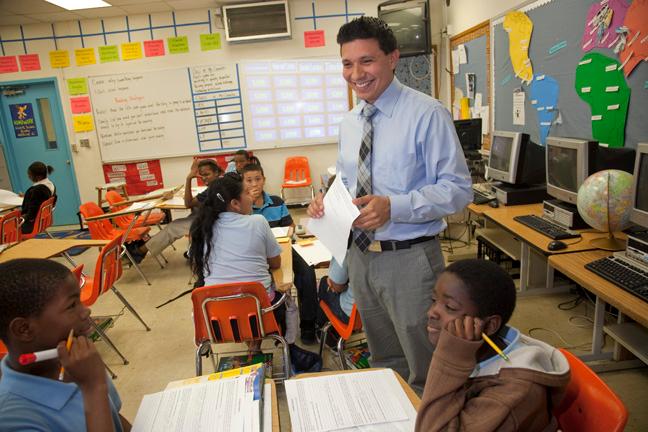
“Our mission is to develop, place and connect essential Latino leaders in the education sector. We are building an ecosystem of Latino advocates by infusing Latino talent into positions of influence. We believe that Latino leaders should be at the forefront of creating an equitable education for Latino students. Latinos for Education prepares nuestra comunidad to break down barriers to educational opportunity for the next generation of Latino students.”
When Andy Canales, executive director for the Greater Houston Area chapter of Latinos for Education, explains the need for Latinx leaders in education, he paints the picture in numbers and in story.
“When we look at the local landscape, only eight percent of senior education leaders in Houston are Latino, and only two percent are on the boards of schools and education organizations. In Texas, we’ve seen an increase in Latino students by 800,000 since 2005, yet only ten percent are graduating college ready. So this really matters to the future of our state.”
To help connect the dots, he speaks from his own experience: “I was an English language learner and the first in my family to go to college. In a room of leaders in education, I’m often the only one with those experiences. So, I’m asking questions that others don’t ask, because that’s not the primary lens through which they view education. I’m asking about language learners, and as a result of me asking those questions, our initiatives are more effective."
"We have to be asking questions from diverse perspectives. Incorporating Latino experience in leadership helps schools and education organizations be more effective in their missions."
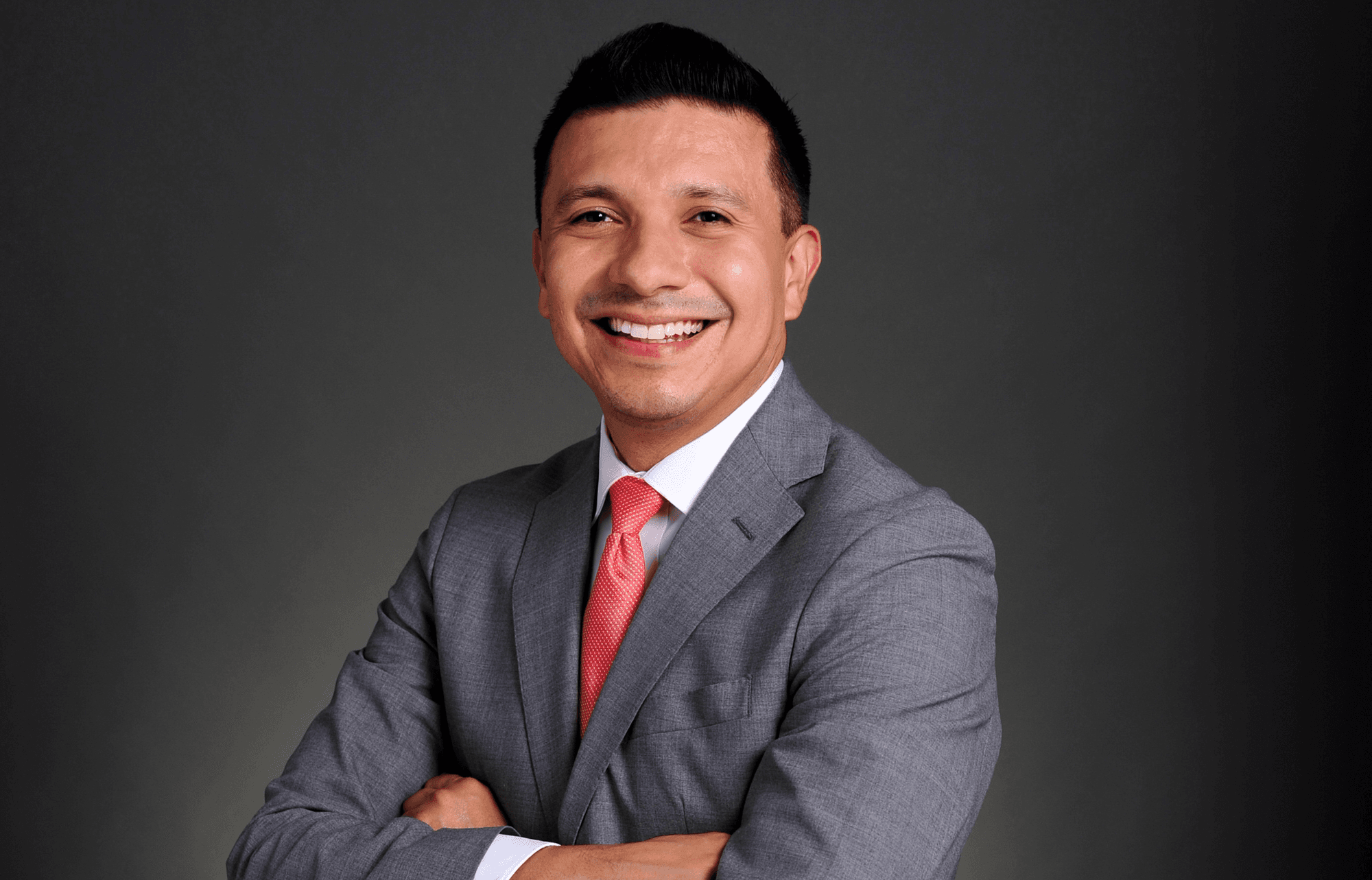
Like many children from immigrant families, Andy Canales learned a story about himself and his family. His parents left behind their lives in El Salvador and set off for the United States, fleeing a brutal civil war.
They settled in Los Angeles and created a life for themselves and their son, eventually gaining a path to citizenship. As much as their story is one of success, it is also one of trauma, and Andy saw the trauma play out in their lives.
“I would hear stories of civil war, and I realized later that my dad was still processing the trauma that he witnessed. In El Salvador, he watched his friend get shot by a right-wing militia group. And my mom—she wished she had the opportunity to finish school, but the government entered her school and killed students in the classroom who were protesting. Their stories helped me understand how lucky and privileged I am, but not until years later.”
Andy grew up in inner-city LA, a rough neighborhood struggling with gangs, drugs and challenging public schools. But up against that narrative he saw another life. He helped his mom clean the houses of wealthy people in Bel Air and Malibu. Those homes and neighborhoods told of a different reality. And in their midst was Andy’s new future, Pepperdine University.
“My dream became to attend one of the colleges in those neighborhoods, UCLA in Bel Air or Pepperdine in Malibu.”
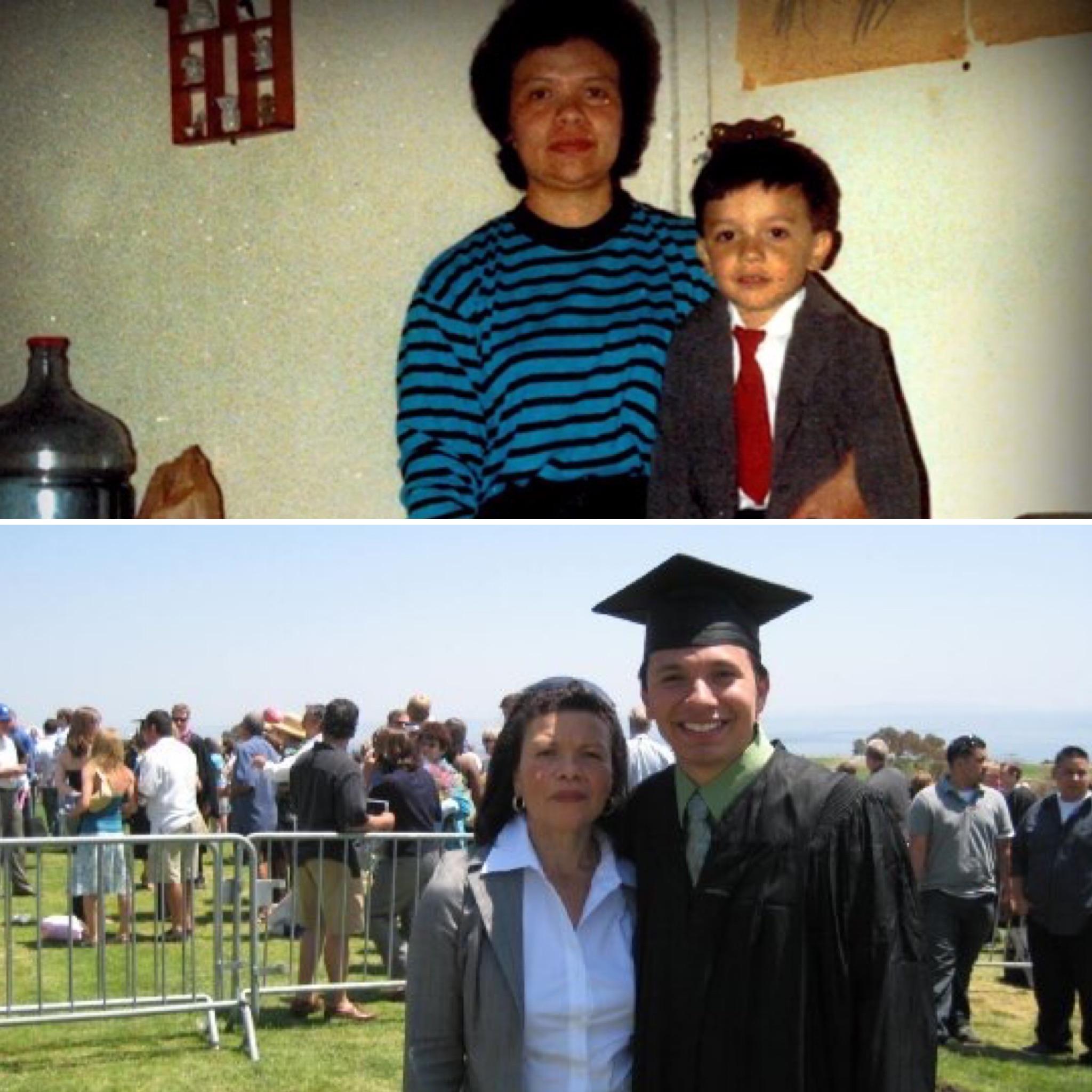
In school in LA, Andy had no teachers who looked like him. If he learned what leaders looked like just by looking around, he did not see himself.
“I cannot think of a single hispanic male teacher growing up. Later, when I was a teacher myself, I was often the first Latino teacher that my students came across and the only male teacher.”
But he saw leadership in himself and found an advocate in his high school counselor, Ms. Jackson.
“I was accepted to a magnet high school and met Ms. Jackson. I shared with her my dream. When Pepperdine called every high school in LA and offered one student a chance to study there after junior year, she submitted my name. I absolutely loved it and applied to attend college.”
Right on the verge of achieving his dream, Andy received the plot twist. He didn’t get in. Unwilling to accept this defeat, this high school student from inner-city LA called up the Chancellor of Pepperdine University and asked for a meeting.
Did he get a meeting? No. Not at first.
“So I did what only a bold and fearless 17-year-old would do—I went to the chancellor’s office. I managed to get a 30-minute meeting, and I told him my story about cleaning houses, explaining why I was a good fit for Pepperdine. I asked him for a letter of recommendation.”
Against odds, Andy got the letter, and he got accepted to Pepperdine. He still has the chancellor’s letter—written proof that stories matter, and that they’re life changing.
“My time at Pepperdine changed the trajectory of my life.”
He went on to double major in political science and religious studies, thinking he would eventually become a lawyer and work in immigration law. But Teach for America set him on a different path. Working as a sixth grade world history teacher in New York and Miami, he realized a great need for both Latino teachers and male teachers.
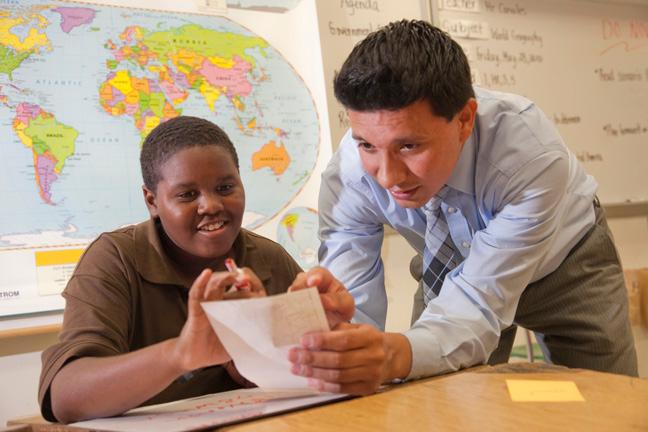
Latinos for Education supports emerging leaders like Andy through two primary initiatives, the Aspiring Latino Leaders Program and the Latino Board Fellows Program.
The Latino Board Fellows Program helps Latino leaders join the boards of education organizations. The Aspiring Latino Leaders program identifies and cultivates leaders in the education field.
How does the program help grow and support emerging leaders? Through trainings that help sharpen their skills and expand their sphere of influence from where they are. They learn to network and to understand the education landscape across Houston.
And they practice storytelling. Based on Marshall Ganz’s Public Narrative Framework used in successful organizing and leadership development, the program recognizes stories as powerful means to develop a strong sense of self and to ultimately convince others to take action.
“We have such powerful stories to tell, but it takes a lot of practice. We learn how to tell the story of self, the story of us, and the story of now.”
If you’re looking for your own place in the story of your community, education is a crucial space to explore. Andy suggests that aspiring leaders of all ages—high schoolers, college students and teachers too—can find opportunities in their own schools and communities.
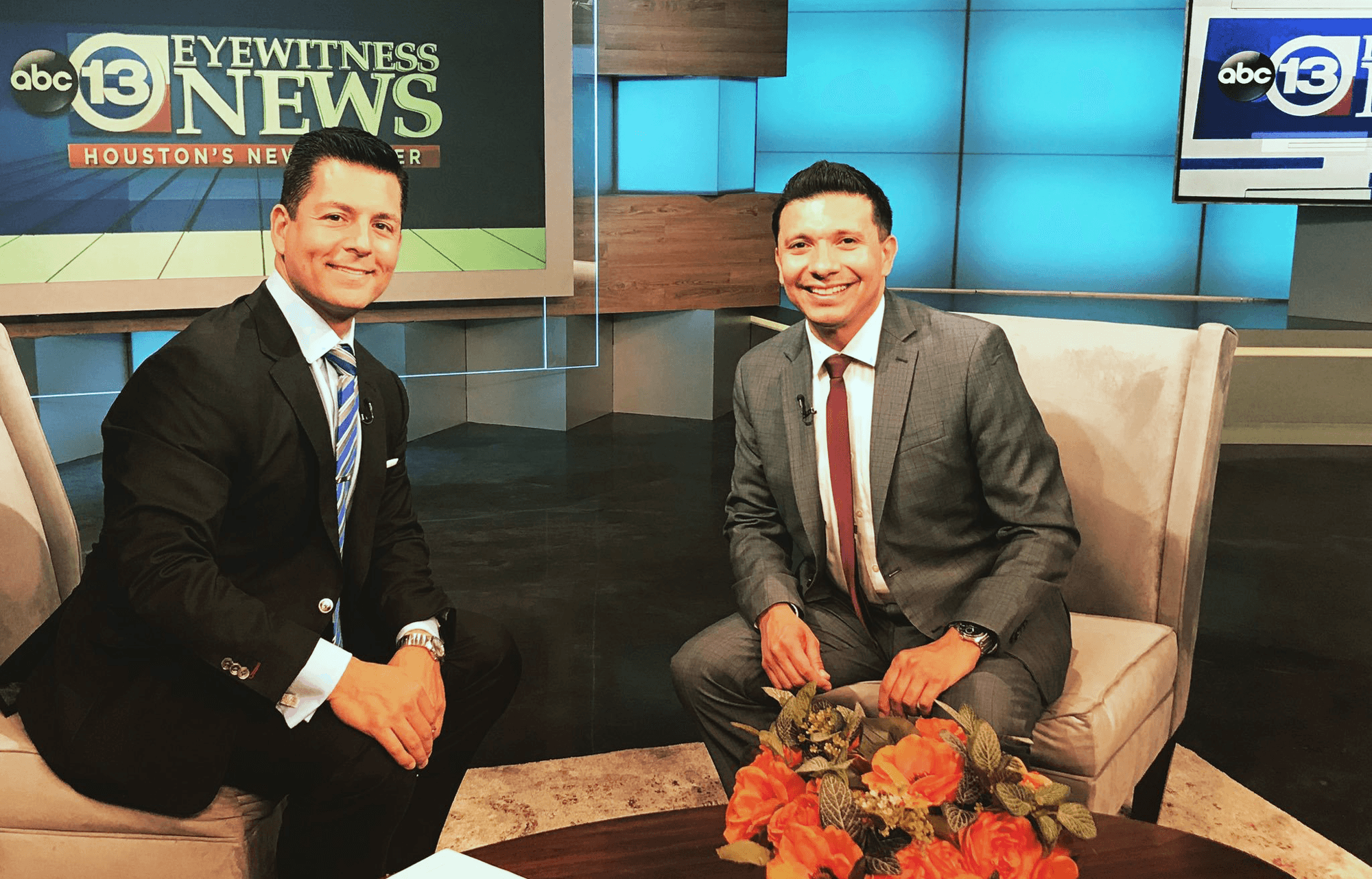
What’s the next chapter in your story? If you think teaching might be next for you but aren’t sure where to start, TEACH for Houston has free 1:1 coaching. You can ask about life in the classroom, educator preparation programs and what move to make next. Sign up to talk to a Houston-area coach.